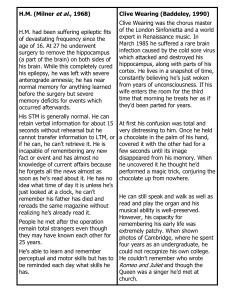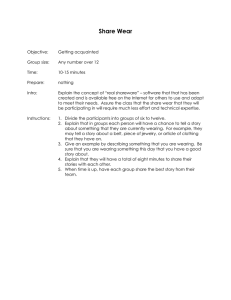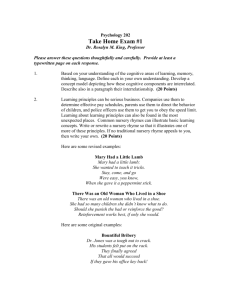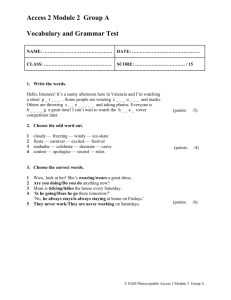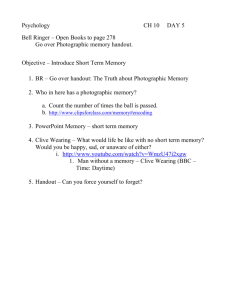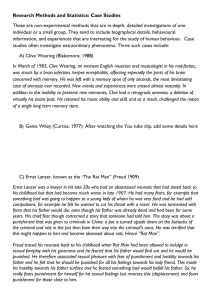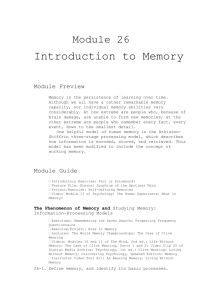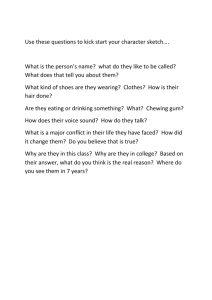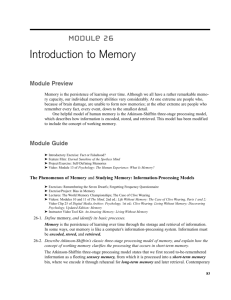KEY STUDY - Sacks (2007) – Brain damage and Amnesia
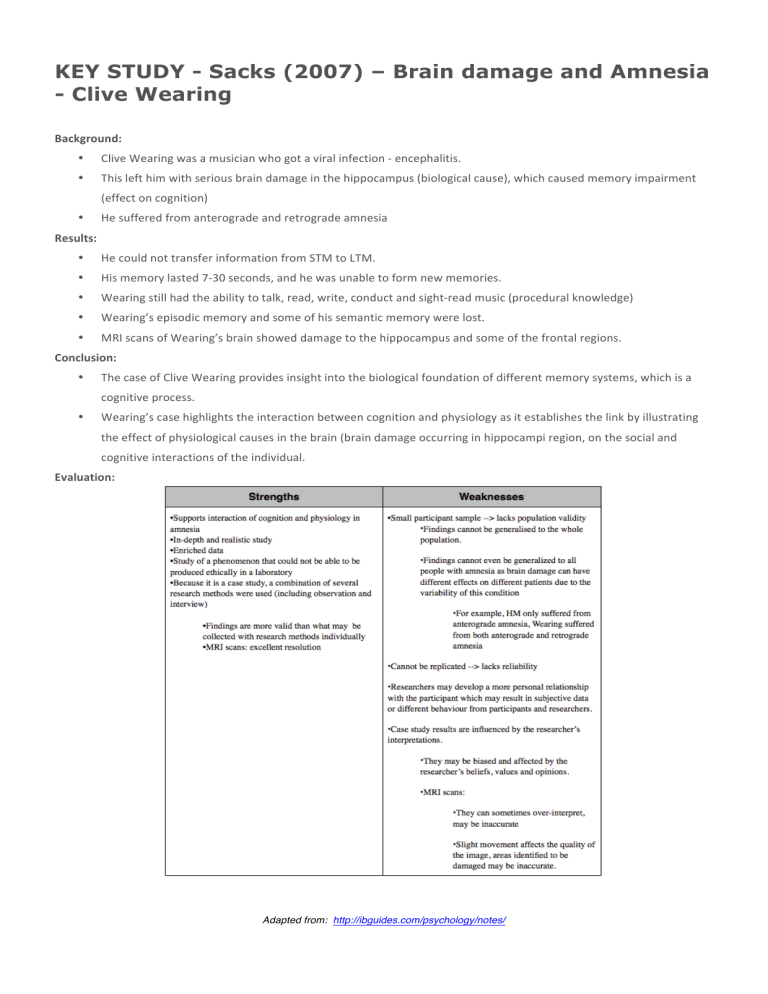
KEY STUDY - Sacks (2007) – Brain damage and Amnesia
- Clive Wearing
Background:
•
Clive Wearing was a musician who got a viral infection -‐ encephalitis.
•
This left him with serious brain damage in the hippocampus (biological cause), which caused memory impairment
(effect on cognition)
•
He suffered from anterograde and retrograde amnesia
Results:
• He could not transfer information from STM to LTM.
•
His memory lasted 7-‐30 seconds, and he was unable to form new memories.
•
Wearing still had the ability to talk, read, write, conduct and sight-‐read music (procedural knowledge)
• Wearing’s episodic memory and some of his semantic memory were lost.
•
MRI scans of Wearing’s brain showed damage to the hippocampus and some of the frontal regions.
Conclusion:
•
The case of Clive Wearing provides insight into the biological foundation of different memory systems, which is a cognitive process.
•
Wearing’s case highlights the interaction between cognition and physiology as it establishes the link by illustrating the effect of physiological causes in the brain (brain damage occurring in hippocampi region, on the social and cognitive interactions of the individual.
Evaluation:
Adapted from: http://ibguides.com/psychology/notes/
